Kenya
Kenya, in long form the Republic of Kenya is a country in East Africa. It borders South Sudan to the northwest, Ethiopia to the north, Somalia to the east, Uganda to the west, and Tanzania to the southwest. It is washed by the Indian Ocean to the southeast.
Kenya’s history
Precolonial
The Great Rift Valley is often referred to as the “cradle of humanity” because of the many hominid fossils found there. The oldest, Proconsuls dating from the Miocene, were discovered on the volcanic island of Rusinga by Louis Leakey. Other findings indicate that hominids like Homo habilis and Homo ergaster lived in Kenya 2.5 million years ago (Plaisancien). Peoples from the north, speaking a Cushitic language, arrived in the region around 2000 BC. At the end of the first millennium, Bantu peoples arrived from the west. Finally, from 1500 AD. AD came the Nilotic-speaking peoples from the northwest.
Colonial
The colonial history of Kenya began in the 8th century with the establishment of Arab and Persian colonies along the coast. At the beginning of the sixteenth century, in the wake of Vasco da Gama, the Portuguese arrived whose domination was overshadowed by that of the Oman sultans in 1698. However, these colonizations remained confined to the coast of Zanguebar with no desire to explore towards the interior of the continent; the goal being the control of the sea route of India. Following explorers like Eduard Carl Oscar Theodor Schnitzer, the complete colonization of Kenya began with what was a German protectorate over what was previously part of the possessions of the Sultan of Zanzibar. In 1895, it was ceded by Berlin to the United Kingdom following the arrival in the interior, in 1888, of the British Imperial Company of East Africa. The famine that occurred in 1899 killed an estimated 50% to 90% of the population from the region which will become the former central province of Kenya. Following the model of South Africa, the British colonial administration imposed in 1915 the obligation for all blacks over the age of fifteen to wear permanently around their necks a certificate proving their identity and their employment. In 1920, the governor increased the per capita tax to force the Kikuyu to hire agricultural workers from the settlers and thus be able to pay. However, when in 1921 the settlers cut the wages of native workers by a third, demonstrations and strikes broke out. On March 16, 57 demonstrators were killed and the leaders of nationalist associations were arrested and then deported.
The new protectorate is called British East Africa. In 1902, white settlers were allowed to access the fertile high plains. These settlers had influence in government even before it was officially declared a Crown colony in 1920, but Africans were excluded from direct political participation until 1944. In 1926, an agreement between the British government and the Italian government provides for the attachment of the Jabaland region, hitherto in Kenya, to Somalia under Italian colonization. From October 1952 to December 1959, the Mau Mau rebellion fought against British colonial law. British policymakers then involved more and more Africans in government processes, in order to cut off the rebels from their support. The first direct elections for Africans to the Legislative Council took place in 1957. The war ended with 100,000 deaths on the African side and 320,000 detainees in camps, more than a thousand of whom were executed and thousands of others tortured. The British liberate Jomo Kenyatta and some other political prisoners in 1961 in order to allow, in view of the imminent independence of Kenya, the constitution of a “moderate” government favorable to their interests.
Independence
Although the British hoped to hand over power to a moderate group, it was the Kenya African National Union (KANU) of Jomo Kenyatta, a member of the Kikuyu tribe and a former prisoner under martial law, who formed the first government soon after the independence of the country on December 12, 1963. First constitutional monarchy, Kenya becomes a year later a republic, Kenyatta became the first President of the Republic. In 1964 the minority party, the Kenya African Democratic Union (KADU), a coalition of small tribes fearing the domination of the larger ones, self-dissolved and joined the KANU. In 1966, the Kenya People’s Union (KPU) was created, a party that was left-wing but small and played a big role. It was chaired by Jaramogi Oginga Odinga, ex vice-president and sage Luo. After an eventful visit by Kenyatta to Nyanza province, the KPU is banned and its leader imprisoned. When Kenyatta died on August 22, 1978, Vice President Daniel Arap Moi became acting president, then officially president on October 14 after being elected head of KANU and nominated as his only candidate. In June 1982 the National Assembly enshrined the single party in the Constitution, but this clause was rejected by the Parliament in December 1991. In December 1992 multi-party elections gave KANU and its leader the majority of seats, and Moi was re -elected for a five-year term, while the opposition parties seize around 45% of parliamentary seats. The number of political parties increased from 11 to 26 following liberalization in November 1997. After a short victory in the December 1997 elections, KANU retained its parliamentary majority, and Moi was re-elected.
Unable to represent himself constitutionally in December 2002, Moi tried unsuccessfully to make Uhuru Kenyatta, son of the first president of Kenya, his successor. A disparate coalition of opposition parties wins the elections, and its leader, Mwai Kibaki, former vice-president of Moi, is elected President by a large majority: 62.2% of the votes before Uhuru Kenyatta (31.3%) and three other candidates. This election thus marks a democratically decided alternation in the ballot boxes. A first draft of a new constitution was rejected in 2005 by a referendum. In the presidential election of December 2007, Mwai Kibaki was declared the winner against the main opponent, Raila Odinga contrary to the trends observed. Controversial by observers from the European Union who asked for a recount of the ballot papers, this announcement was immediately contested by the Raila camp and led to the greatest post-electoral violence in Kenya. At the end of February 2008, thanks to the mediation of Kofi Annan, the former Secretary General of the United Nations, a power-sharing agreement between President Kibaki and Raila was signed, and unanimously ratified by Parliament on March 18, for resolve the crisis. It materialized with the appointment of Raila Odinga as Prime Minister on April 13. Four days later, he was sworn in and a coalition government was formed.
New constitution in 2010
On August 4, 2010, a referendum validates the text to reform the Constitution, including a Charter of rights and freedoms dear to Raila, and now supported by Kibaki 14, by a 72.1% majority of Kenyans who participated in the popular referendum ( 70% of favorable votes against 30% of unfavorable). This constitution was promulgated by President Mwai Kibaki on August 27, 2010. During the 2013 presidential election, Uhuru Kenyatta was declared the winner in the first round, on March 4, 2013} with 50.07% of the vote before Raila Odinga with 43.31%. The latter contested the elections and, in accordance with the possibility given by article 140.1 of the Constitution, filed, on March 16, 2013, a petition to the Supreme Court to contest the validity of the presidential election, alleging irregularities. The Court delivered its judgment on March 30 following, declaring that “the general election was free and impartial” and that “Uhuru and his running mate Ruto were validly elected”. Uhuru Kenyatta is invested as the 4th president of Kenya on April 9, 2013 at the Moi international sports center in Kasarani (Nairobi). The Islamic State organization and the chebabs multiply the attacks in Kenya in the 2010s, defeating the security policy of the government. In addition to these attacks, there was internal political instability in the months preceding the general elections in August 2017. The outgoing president, Uhuru Kenyatta, was finally re-elected and posted an electoral score of 54.28% of the votes cast. His rival Raila Odinga again talks about fraud. Riots broke out before a call for calm by Raila Odinga, who again deferred to the Supreme Court. The latter, to everyone’s surprise, this time gave him reason and invalidated the elections, which were reorganized in October 2017. This decision shows a progressive consolidation of checks and balances in Kenya following the constitution of 2010. Following changes to the electoral law before this new ballot, Raila Odinga withdraws and calls for a boycott of the election. Finally, the outgoing president Uhuru Kenyatta wins the new ballot with 98.26% of the votes, but the participation on October 26, 2017 is only 38.8% of the registered voters, compared to 79% on August 8, 2017, date of the first presidential election quashed by the Supreme Court.
Kenya’s politics
After being a monopoly state for almost 30 years, Kenya has become a multi-party republic. The president is both head of state and head of government. National executive power is in the hands of the government, while legislative power is shared between the government and the National Assembly. The judiciary is independent of the first two. There is regional executive power, subordinate to national power, entrusted to the provincial governors. Although social structures were inherited from the British Empire, political strategy was focused on the United States, of which it was the most faithful ally in East Africa.
Kenya’s economy
Currency
The national currency is the Kenyan shilling (KES) = 100 cents. It is issued by the Central Bank of Kenya. Monetary values in court since 200359: tickets bearing the image of Jomo Kenyatta: 50, 100, 200, 500 and 1,000 KES rooms with the effigy of Jomo Kenyatta: 50 cents, 1, 2, 5, 10 and 20 KES, with the image of Mwai Kibaki: 40 KES.
Economic indicators
According to the IMF, in 2010, nominal GDP was 32,417 million USD while GDP per capita was 888 USD. The growth rate compared to the previous year is 2.1%. The inflation rate is 4.2%. The budgetary balance is equal to – 6.3% of GDP and the trade balance is in deficit of 2.024 million USD. The country is ranked 108th in the IPE with a score of 51.4 out of a maximum of 100. Kenya exports for 5,443 million USD and imports for 11,870 million USD in 2011. However, the terms of trade are unfavorable because they have a deficit of -6.427 million (export-import calculation). Share of main activity sectors in GDP in 2009 KNBS 1: primary sector: 25.3% agriculture and forestry: 24.4% secondary sector: 16.3% manufacturing and processing: 9.5% construction: 4.4% electricity and drinking water: 2.4% tertiary sector: 58.4% wholesale and retail trade: 10% transport and communications: 9.8% education: 6% financial intermediation: 5.7% rentals and real estate services: 5.1% public administration and defense: 4.5% health: 2.7%.
Kenya’s demography
Kenya has 70 tribal groups from three different ethnicities. The largest ethnic group is of Bantu origin (Kikuyu, Luhya, Meru, Embu). Almost equal, the group of Nilotic origin (Maasai, Luo, Kalenjin, Samburu, Pokot, Turkana). Next comes the group of Cushitic origin (Orma, Somali, Borana). Some groups, although considered of Bantu origin, have a mixed culture (Kamba, Taita, the Swahili tribes formed by the Mijikenda). The country also has Indian and European minorities from colonization (the former having been recruited by the latter). It must also cope with the exodus of populations victims of the conflicts in Somalia or the civil war in Sudan.
Kenya’s education
Since the start of the school year in January 1985, the Kenyan educational system has been based on a cycle of 8-4-4 starting at the age of 6 years. 8 years of primary school; 4 years of high school education; 4 years of higher education (middle level college or public university). However, some international schools use the British education system for children between the ages of 2 and 18. English and Swahili are taught at the same time in primary school. English then becomes the reference language for learning. The country has seven public universities, the oldest of which is the University of Nairobi (University of Nairobi) 42. 50% of the population can speak English, to varying degrees. The English language is very present in large urban areas (such as Nairobi and Mombasa), on the other hand, in the countryside, and in the rural world, English is much less present, in favor of Swahili. If young rural people learn English, this language becomes less useful, if the young person stays in the countryside, and over the years, he forgets the language, losing his use, because he speaks the language of his ethnic group. On the other hand, for those who leave for the city, or elsewhere, the language becomes very useful, and moreover, to communicate with other ethnic groups (with Swahili).
Kenya’s language
The official languages are Swahili and English (article 7.2 of the Constitution). The national language is Swahili (article 7.1 of the Constitution) to which are added 51 dialects (some endangered) protected and promoted by articles 7.3.a and b of the Constitution.
-
Kenya
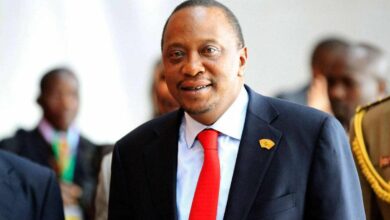
Kenya’s Appeals Court Rejects President Kenyatta’s Constitutional Review Proposal
Kenya’s appeals court on Friday rejected President Uhuru Kenyatta’s government’s proposal to make fundamental changes to the constitution, reported Africa…
Read More » -
Kenya

Kenyan President Kenyatta Announces Extension Of Night Curfew For Next 60 Days
Kenyan President Uhuru Kenyatta on Tuesday announced that the government has decided to extend the night curfew by 60 days…
Read More » -
Kenya
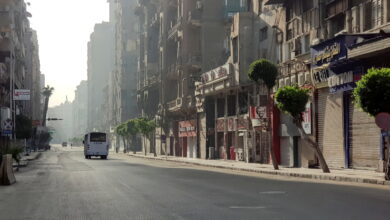
Kenyan Health Ministry Announces Strict COVID-19 Measures In Hotspot Areas
Kenyan Health Ministry on Thursday announced a slew of strict measures to help curb the spread of coronavirus in some…
Read More » -
Kenya

Kenyan Government Ready To Reopen Embassy In Somalia As Soon As Possible
Kenyan authorities on Monday said it will reopen its embassy in Mogadishu as soon as possible, reported Africa News. The…
Read More » -
Kenya
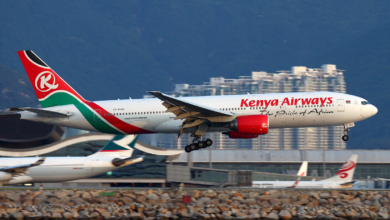
Kenyan Government Reopens Airspace To Flights To And From Somalia
The Kenyan government on Thursday announced it has decided to reopen its airspace for flights to and from Somalia, reported…
Read More » -
Kenya

Kenyan President Appeals African Countries To Unite Together Beyond Covid-19
Kenyan President Uhuru Kenyatta on Tuesday made an appeal to African countries to continue working together in fighting the COVID-19…
Read More » -
Kenya

Kenya’s High Court Puts Brakes On President’s Plan To Reshape Government
Kenya’s High Court on Thursday ruled that President Uhuru Kenyatta’s plan of amending the country’s constitution was illegal, reported The…
Read More » -
Kenya

Kenya Government Suspends Flights To And From Somalia For Next Three Months
Kenya has suspended flights to and from Somalia just days after the latter announced diplomatic ties between the two countries…
Read More » -
Kenya
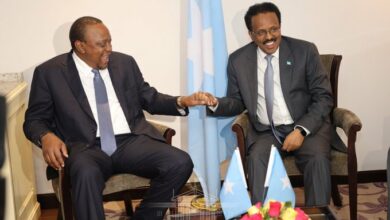
Somalia Government Restores Diplomatic Ties With Kenya After Nearly Six Months
Somalia government on Thursday announced it is restoring diplomatic relations with Kenya after mediation by Qatar, reported Reuters. “The Federal…
Read More » -
Kenya
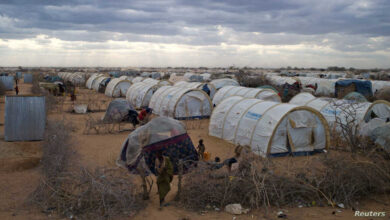
Kenyan Government Says Dadaab, Kakuma Refugee Camps Will Close Next Year
The Kenyan government on Thursday said it has informed the United Nations about its decision to shut down two refugee…
Read More » -
Kenya
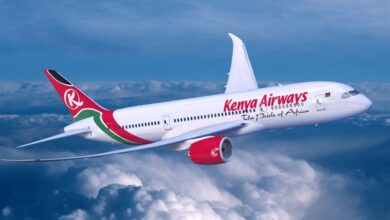
Kenyan Health Ministry Suspends Flights To India Amid Surge In Coronavirus Cases
The Kenyan Health Ministry On Wednesday said it has decided to suspend flights to and from India after midnight on…
Read More » -
Kenya
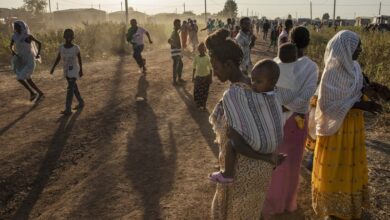
Kenyan Government Says More Than 1.4 Million People Facing Starvation Due To Drought
A Kenyan government official on Thursday said over 1.4 million people in Kenya are currently at risk of hunger, starvation,…
Read More » -
Kenya

Kenyan President Uhuru Kenyatta Announces A Slew Of New COVID-19 Restrictions
Kenyan President Uhuru Kenyatta on Friday announced some new COVID-19 restrictions to combat a surge in the number of infections,…
Read More » -
Kenya
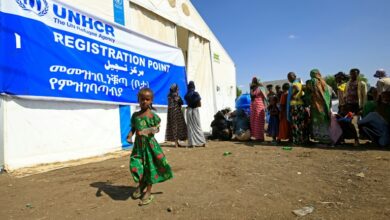
Kenyan Government Orders Closure Of Dadaab, Kakuma Refugee Camps
The Kenyan government on Wednesday gave two weeks’ time to the United Nations refugee agency- UNHCR- to come up with…
Read More » -
Kenya
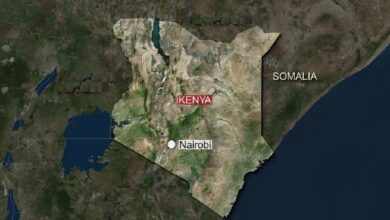
Kenyan Government Opts Out Of Maritime Dispute Case Hearing With Somalia At The ICJ
The Kenyan government has reportedly decided not to take part in the hearings of its maritime dispute case with Somalia…
Read More » -
Kenya

Kenyan Presidency Says First Batch Of COVID-19 Vaccines To Arrive Next Week
Kenyan President Uhuru Kenyatta’s office on Thursday said the country will receive its first batch of COVId-19 vaccines in the…
Read More » -
Kenya
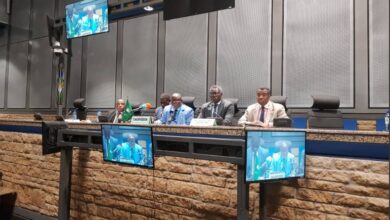
African Union Appeals For Dialogue Between Kenya, Somalia To Ease Border Tensions
The African Union (AU) on Tuesday called for dialogue between Kenya and Somalia to ease tensions along the common border…
Read More » -
Kenya

Kenya: Government Expects To Get First Doses Of COVID-19 Vaccine In April This Year
Kenya is expected to receive the first doses of COVID-19 vaccines in April this year, reported All Africa. Health Cabinet…
Read More » -
Kenya

Kenyan Health Ministry Reports Over 300 COVID-19 Infections, 8 Additional Deaths
Kenyan health officials on Thursday reported 335 new coronavirus infections in tests conducted in the last 24 hours and eight…
Read More » -
Kenya
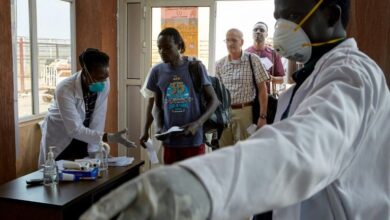
Kenyan Doctors Begin Strike Over Inadequate Insurance Benefits, Protective Equipment
Kenyan doctors working in government hospitals began a strike on Monday over lack of protective equipment (PPE) and inadequate insurance…
Read More » -
Kenya
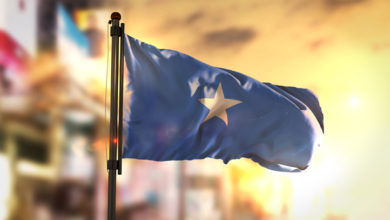
Somalia Government Agrees To Resolve Diplomatic Row With Kenya
Somalia’s government has agreed to de-escalate tensions with Kenya during a conference held in Djibouti on Monday, reported Anadolu Agency.…
Read More » -
Kenya

Kenyan Government Tightens Rules On Gatherings Amid Increasing Covid-19 Cases
The Kenyan government has reduced the number of guests allowed to attend social gatherings, wedding functions, and burials after the…
Read More » -
Kenya
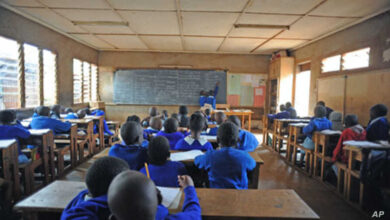
Kenyan Education Ministry Announces Fully Reopening Of Schools From January 4
The Kenyan ministry of education on Monday said that all schools will reopen fully in January after nearly a year…
Read More » -
Kenya
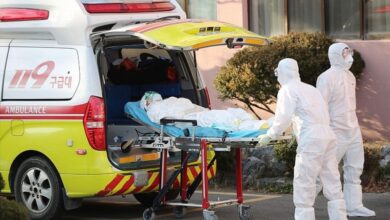
Kenya: Health Ministry Reports New Highest Daily COVID-19 Death Toll
Kenya’s Health Ministry on Tuesday reported 24 COVID-19 related deaths on Tuesday, the highest single-day toll since March when the…
Read More » -
Kenya

Kenyan President Reintroduces Measures To Contain Spread Of Coronavirus
Kenyan President Uhuru Kenyatta on Wednesday announced the reintroduction of measures to contain the spread of the coronavirus, just weeks…
Read More »

